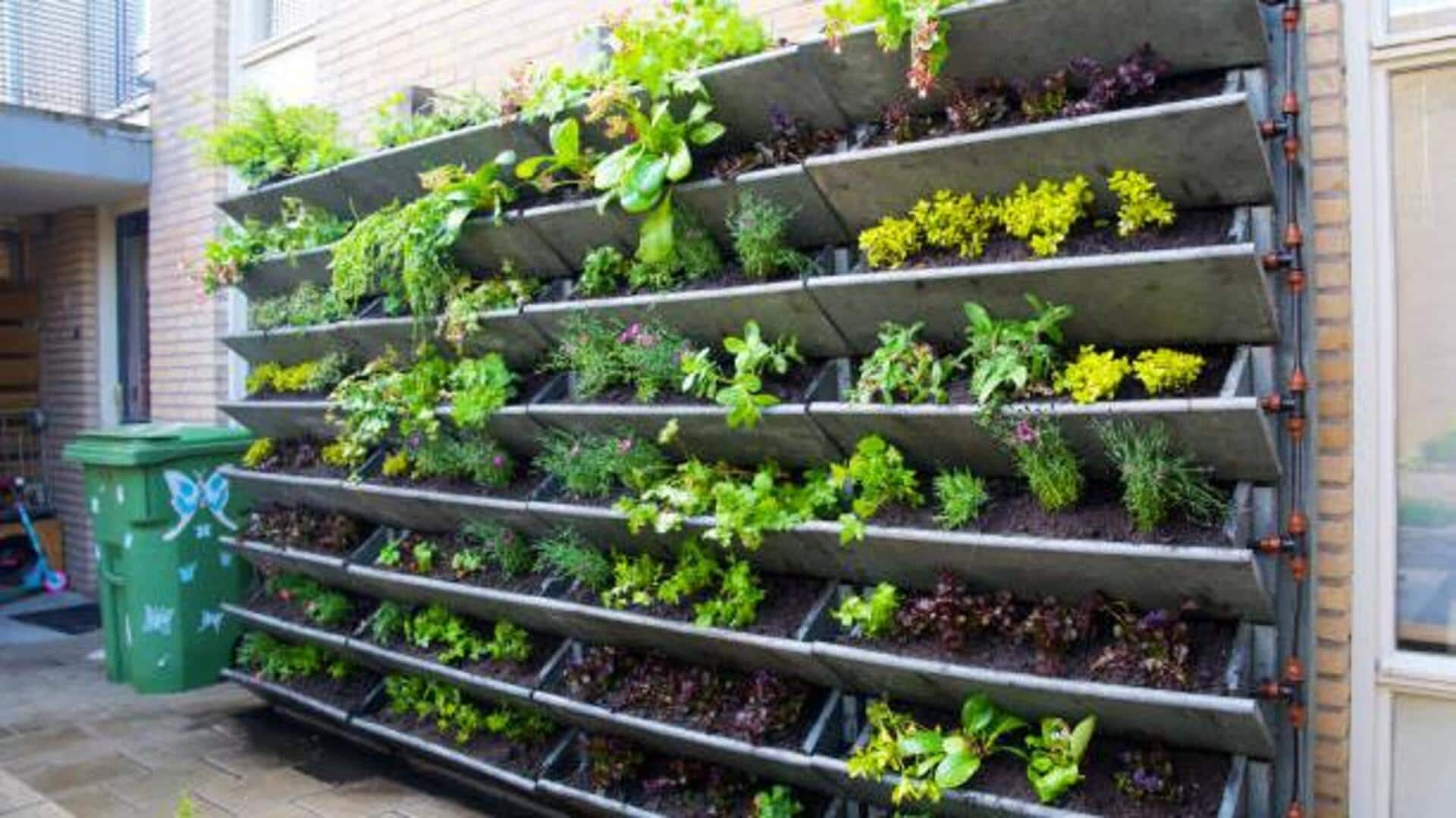
How to start a budget-friendly garden
What's the story
Urban gardening is becoming increasingly popular in Africa as more individuals look for sustainable and economical solutions to grow their own food. With space and resources at a premium, urbanites are discovering how to grow their gardens without spending a fortune. Here, we look at practical, cost-effective gardening hacks for African urban spaces. We delve into maximizing space, local materials, efficient techniques, etc.
Space optimization
Vertical gardening solutions
Vertical gardening is the ideal solution for those who don't have enough ground space. Using walls or fences, you can grow plants upwards rather than outwards. Old pallets or plastic bottles can be repurposed into vertical planters. This method not only saves space but also adds the aesthetic appeal to your garden. Vertical gardens can also improve air quality by adding greenery to compact urban environments.
Cost-effective resources
Utilizing recycled materials
Recycling materials is a smart way to cut down costs while being eco-friendly. Old containers, be it buckets or cans, can be repurposed into plant pots with little effort. Wooden crates or tires can act as raised beds for vegetables or herbs. By reusing available resources, you cut down on waste and bring together a one-of-a-kind garden setup that says creativity and sustainability.
Efficient irrigation
Water conservation techniques
Water conservation is essential in several African cities where water scarcity is a problem. Setting up drip irrigation systems with recycled plastic bottles ensures that plants are getting enough moisture without wasting too much water. Mulching the soil with organic materials such as straw retains soil moisture and reduces evaporation rates by up to 70%. These techniques go a long way in keeping plants healthy without wasting precious water.
Natural pest control
Companion planting strategies
Companion planting refers to the practice of growing certain plants together to help each other by naturally deterring pests or improving growing conditions. For example, planting marigold with vegetables can keep harmful insects at bay with their strong scent. Likewise, basil planted near tomatoes enhances flavor while keeping pests away. This method minimizes the use of chemical pesticides and creates a healthier garden ecosystem.
Shared spaces
Community gardening initiatives
Community gardens give urban dwellers a chance to work together on common plots. They can grow produce together at a lower cost per individual gardener involved. This is as opposed to doing it alone elsewhere in the city. Alternatively, you could do it alone outside these initiatives. Or entirely away from them altogether if you want.